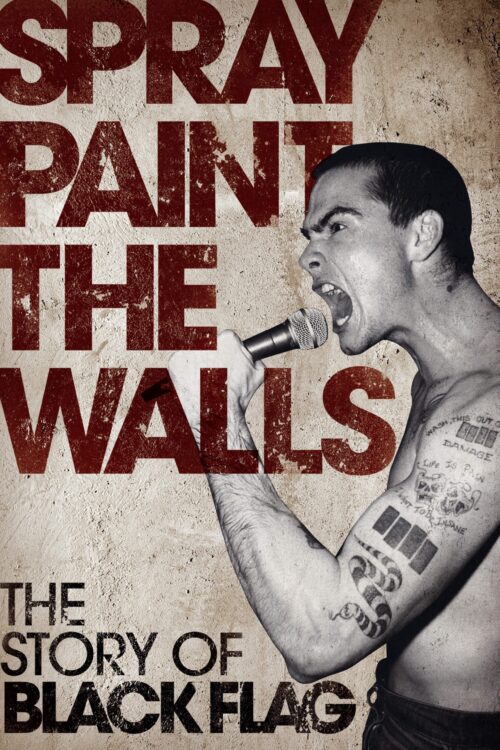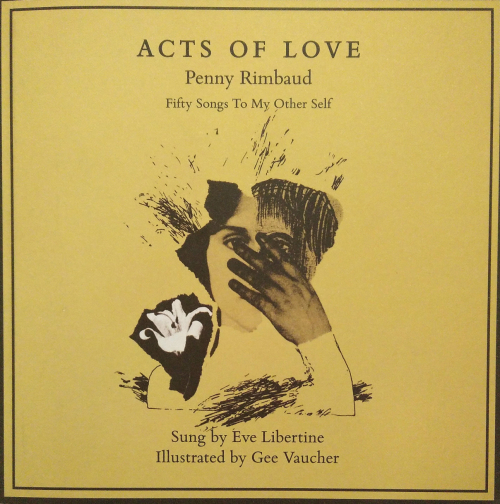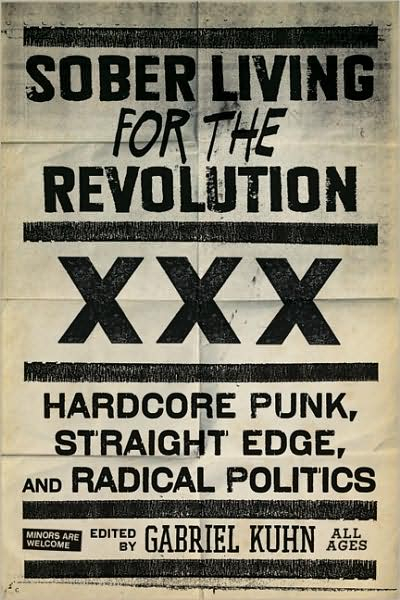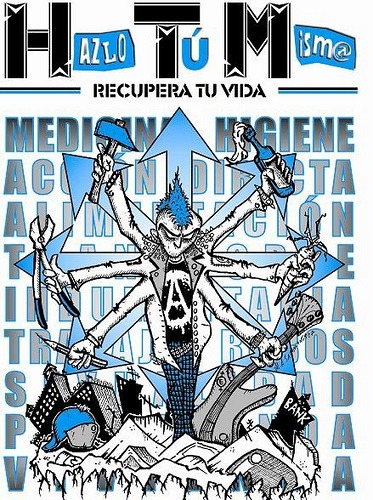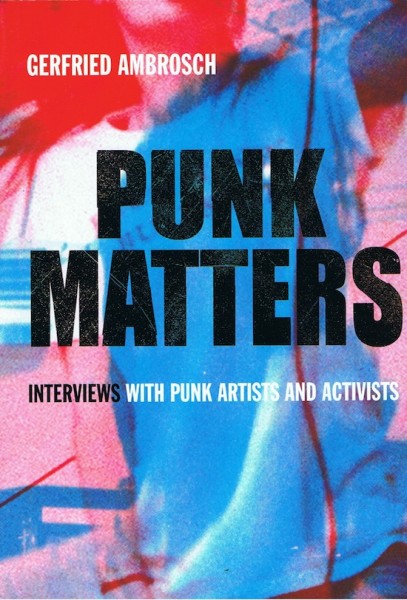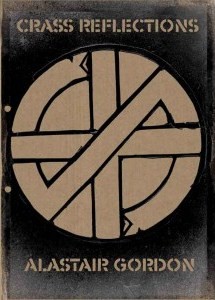<p>Straight edge—hardcore punk’s drug-free offshoot—has thrived as a subculture since the early 1980s. Its influence has reached far beyond musical genres and subcultural divides. Today it is more diverse and richly complex than ever, and in the past decade alcohol and drug use have become a much-discussed issue in radical politics, not least due to the hard work, dedication, and commitment to social and environmental justice found among straight-edge activists.</p>
<p><em>X: Straight Edge and Radical Sobriety</em> is Gabriel Kuhn’s highly anticipated follow-up to his critically acclaimed <em>Sober Living for the Revolution</em>. In this impressive volume, Kuhn continues his reconnaissance of straight-edge culture and how it overlaps with radical politics. Extensively illustrated and combining original interviews and essays with manifestos and reprints from zines and pamphlets, X is a vital portrait of the wide spectrum of people who define straight-edge culture today. In the sprawling scope of this book, the notion of straight edge as a bastion of white, middle-class, cis males is openly confronted and boldly challenged by dozens of contributors who span five continents.</p>
<p><em>X</em> takes a piercing look at religion, identity, feminism, aesthetics, harm reduction, and much more. It is both a call to action and an elaborate redefinition of straight edge and radical sobriety. Promising to inspire discussion, reflection, and unearth hidden chapters of hardcore punk history, <em>X: Straight Edge and Radical Sobriety</em> is of crucial importance to anybody interested in the politics of punk and social transformation.</p>
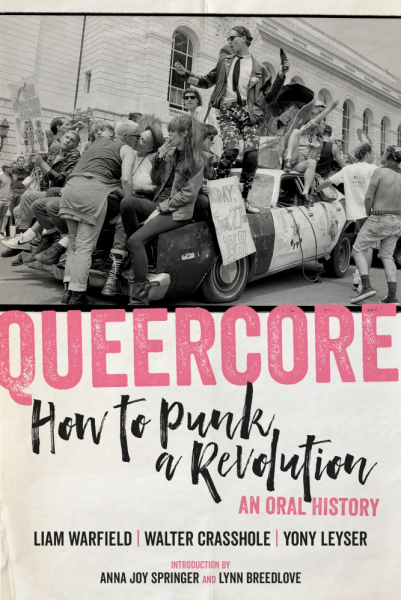 <p><em>Queercore: How to Punk a Revolution: An Oral History</em> is the very first comprehensive overview of a movement that defied both the music underground and the LGBT mainstream community. Through exclusive interviews with protagonists like Bruce LaBruce, G.B. Jones, Jayne County, Kathleen Hanna of Bikini Kill and Le Tigre, film director and author John Waters, Lynn Breedlove of Tribe 8, Jon Ginoli of Pansy Division, and many more, alongside a treasure trove of never-before-seen photographs and reprinted zines from the time, <em>Queercore </em>traces the history of a scene originally “fabricated” in the bedrooms and coffee shops of Toronto and San Francisco by a few young, queer punks to its emergence as a relevant and real revolution.</p> <p><em>Queercore </em>is a down-to-details firsthand account of the movement explored by the people that lived it—from punk’s early queer elements, to the moment that Toronto kids decided they needed to create a scene that didn’t exist, to Pansy Division's infiltration of the mainstream, and the emergence of riot grrrl—as well as the clothes, zines, art, film, and music that made this movement an exciting middle finger to complacent gay and straight society.</p> <p><em>Queercore </em>will stand as both a testament to radically gay politics and culture and an important reference for those who wish to better understand this explosive movement.</p>
<p><em>Queercore: How to Punk a Revolution: An Oral History</em> is the very first comprehensive overview of a movement that defied both the music underground and the LGBT mainstream community. Through exclusive interviews with protagonists like Bruce LaBruce, G.B. Jones, Jayne County, Kathleen Hanna of Bikini Kill and Le Tigre, film director and author John Waters, Lynn Breedlove of Tribe 8, Jon Ginoli of Pansy Division, and many more, alongside a treasure trove of never-before-seen photographs and reprinted zines from the time, <em>Queercore </em>traces the history of a scene originally “fabricated” in the bedrooms and coffee shops of Toronto and San Francisco by a few young, queer punks to its emergence as a relevant and real revolution.</p> <p><em>Queercore </em>is a down-to-details firsthand account of the movement explored by the people that lived it—from punk’s early queer elements, to the moment that Toronto kids decided they needed to create a scene that didn’t exist, to Pansy Division's infiltration of the mainstream, and the emergence of riot grrrl—as well as the clothes, zines, art, film, and music that made this movement an exciting middle finger to complacent gay and straight society.</p> <p><em>Queercore </em>will stand as both a testament to radically gay politics and culture and an important reference for those who wish to better understand this explosive movement.</p>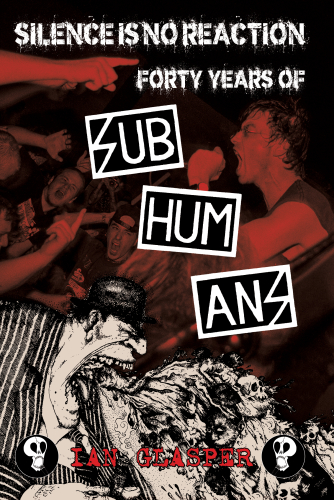 <p>Formed in Wiltshire, England, in 1980, the Subhumans are rightly held in high regard as one of the best punk rock bands to ever hail from the UK. Over the course of five timeless studio albums and just as many classic EPs, not to mention well over 1,000 gigs around the world, they have blended serious anarcho punk with a demented sense of humour and genuinely memorable tunes to create something quite unique and utterly compelling.</p> <p>For the first time ever, their whole story is told, straight from the recollections of every band member past and present, as well as a dizzying array of their closest friends and peers, with not a single stone left unturned. Bolstered with hundreds of flyers and exclusive photos, it’s the definitive account of the much-loved band.</p>
<p>Formed in Wiltshire, England, in 1980, the Subhumans are rightly held in high regard as one of the best punk rock bands to ever hail from the UK. Over the course of five timeless studio albums and just as many classic EPs, not to mention well over 1,000 gigs around the world, they have blended serious anarcho punk with a demented sense of humour and genuinely memorable tunes to create something quite unique and utterly compelling.</p> <p>For the first time ever, their whole story is told, straight from the recollections of every band member past and present, as well as a dizzying array of their closest friends and peers, with not a single stone left unturned. Bolstered with hundreds of flyers and exclusive photos, it’s the definitive account of the much-loved band.</p>

